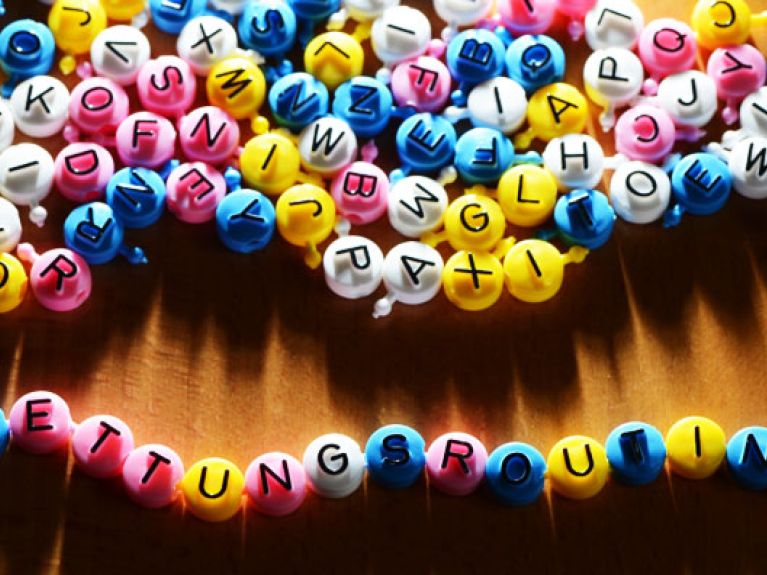German on Mother Language Day
To mark International Mother Language Day, we reveal the most popular German words abroad, plus a record-holder and some interesting facts.

German is the native tongue of more than 100 million people in the European Union, that is to say around 20 percent of the EU’s population. Worldwide, some 14.5 million people speak German as a foreign language. In emerging economies such as China, Brazil and India, we are seeing growing interest in German. It is above all the country’s economic power, political weight and leading position in key technologies which contribute to the significance of German. The German language plays an important role on the Internet: in the online encyclopaedia Wikipedia, for instance, the German page ranks second only to the English version, offering around a million articles.
In addition to the many regional dialects that are to be found across Germany, there are a number of sociolects in the German language. In urban districts with a high immigrant population in particular, young people can be heard speaking “Kiezdeutsch”, a kind of local slang. Speakers of Kiezdeutsch create new sentence structures and like to leave words out. There are, after all, quite a few – contemporary German is estimated to contain 500,000 words. The core vocabulary of an adult German is roughly 50,000 to 70,000 words. Incidentally, the “E” is the most common letter in the German language.
Of course, German also has a number of idiosyncracies. The most prominent must be the language’s compound nouns: with no fewer than 80 letters, the word “Donaudampfschifffahrtselektrizitätenhauptbetriebswerkbauunterbeamtengesellschaft” even made it into the Guinness Book of Records as the longest published word in the German language. “The Most Beautiful German Word”, an international competition initiated by the German Language Council and the Goethe-Institut, seeks out the world’s favourite German words: “Habseligkeiten” – meaning belongings – is considered to be the most popular German word abroad, followed by “Geborgenheit”, which means security, or the feeling of being safe, “lieben”, which is the verb “to love”, “Augenblick”, a moment, and “Rhabarbermarmelade” – rhubarb jam.
International Mother Language Day on 21 February
www.goethe.de
www.deutscher-sprachrat.de
© www.deutschland.de

